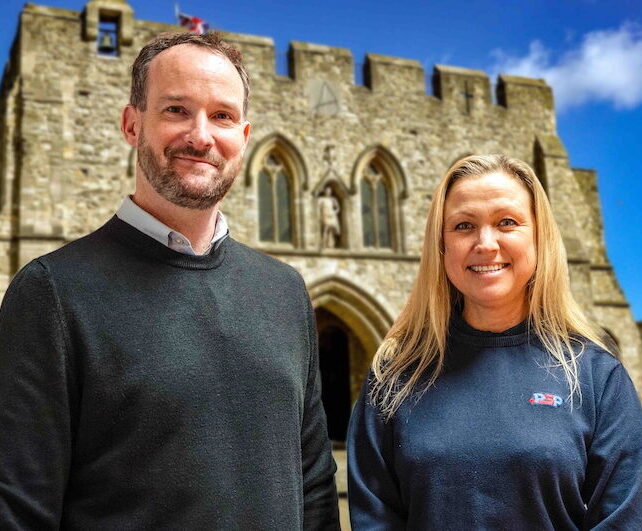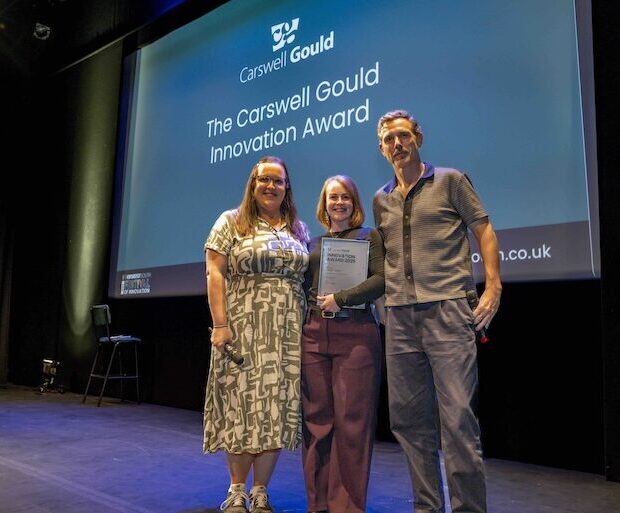Author’s note:
We hope you enjoy our little tale about Monty. Monty is real, he’s my son. The rest of the story is not just plucked from the air either, much of the back story is based on reality. Over the last two months, we have been researching and exploring what the future will look like in Hampshire in 2050. It’s been a significant journey and the following pages set out what we have discovered. All in all, the fiction above may well be closer to the truth than one might imagine.
As the man at the end of the slipway used the robotic lifting arm to complete the installation of the smart sign, Monty and his fellow campaigners stood back with broad smiles – the local Community Hub would be busy tonight.
“You are now entering the New Forest, part of Authentic Hampshire, an environment where transport speeds, technology and simulation are restricted for your enjoyment. Slow down, breathe in what is around you but don’t feed the ponies.”
The idea of being a commoner had been forgotten by many, but not by Monty. His grandad, Tom, had been a tenant farmer on what used to be known as Bisterne Estate, where he kept cows and horses. Monty loved going there as a young boy as it was the only place that he ever really thought of as home. He would spend hours running through the woods, chasing the chickens or petting the animals – he even rode the horses a few times.
Old Tom was one of the few people left that paid to keep rare breed livestock. He had lived in the New Forest all his life, as had his family before him. He used to tell Monty stories about his own grandad who had a huge farm with a herd of dairy cows ‘that fed the town’. He used to say, “never let go of what is real, boy”. The rest of the family spoke about Tom like he was crazy, they seemed to think he was from a bygone age.
There was never much work in the countryside and Monty’s dad was sent to the city to be educated as an engineer. His mother wanted him to have better prospects in a world that she saw as changing fast.
He eventually became one of the overseers that worked on the redevelopment of city infrastructures. It was big business and he was in high demand through the late 20’s and 30’s. Monty and his parents moved around all over the world. He saw less and less of the old farm and in the summer of 2025 his grandad passed away.
Monty was educated on the move and, thanks to his dad’s job, was able to access the finest education leading him to follow in his father’s footsteps. He was promoted year-on-year after his apprenticeship leading to a lead role within the Government’s commercial land partner, ‘P.L.A.C.E’, which ran all infrastructure development to help the country cope with its rapidly growing population.
By the time Monty reached 40 years old he was happily married to his wife Eshe and had a son of his own. He was working increasingly from the office of their rented apartment complex in the city, using the latest visualisation and simulation technology to survey land and create new places. When he wasn’t doing that, he was doing his best to keep sane in a world that was increasingly unsatisfying to him.
Was this the ‘quarter life crisis’ that the family councillor talked about? His friends didn’t understand, because Monty had a great life. But he knew he wanted something else, something more.
In the end it was a chance happening that did it.
Like any other day he logged onto the system and was surveying land, he went through the motions and filed his notes then moved to the next case that was under consideration for redevelopment. He stared at it for a while then suddenly recognised something. He panned out and realised he was looking at a place he recognised called Ringwood. He scanned across the land and before he knew it, he was slap bang, back on ‘terra-firma’ looking at a hyper-real simulation of his granddad’s old family plot. It was still there but not in use. He checked the files and saw that the whole estate had been broken up. The plot was part of a package of land being reviewed for development by his company. He stared at it again, got up, logged out of the system, and shouted for Eshe to take the car off charge and get his son off the games simulator.
That was over five years ago now.
By the time Monty got back from the new sign by the slip road to the old farm plot his family was waiting for him. “So, how did it go?” Eshe asked. He excitedly explained how the sign fitter had come and connected everything up, it lit up and they had all cheered, “We did it Eshe, it’s finally happened, we have given this place a future as well as a past”.
She proudly smiled and was comforted with the thought that he had helped the community. She wasn’t a country girl like Monty, but she valued having natural space for their boy to grow up in. The city was so close anyway that she could easily meet up with her friends. Last month’s shopping trip in New York had been a blast but as they sat on the hyperloop chatting about what Monty had been working on in terms of saving the countryside, her friends thought she was mad. They didn’t get it, but she knew Monty was heading in the right direction.
That’s not to say it had all been plain sailing. When they first arrived, it had taken a while to adjust to life in the countryside. The closest they had been to a ‘community action group’ back in the city was the sports club quiz night.
Five years on and they were still seen as ‘city folk’ by many, but that was changing. More and more people were moving to the countryside, it was cleaner, more beautiful and still only a short drive to the city. They weren’t the first to up-sticks and wouldn’t be the last. She had fallen in love with the lifestyle and understood why Monty wanted to get back to his roots.
The big agenda locally had been how they could stop development encroaching on the natural environment. It had been debated for years and, as land became sparser, the need to safeguard green space became greater. Ideas like no car zones, private ownership and reforestation had been around for a while, as had tech free zones but had made little ground outside the major heritage sites.
Everyone remembers when ‘they’ finally started shutting off personal content devices automatically when you went into hospitals, quiet zones and schools. It was a bit like when they finally banned cigarettes, rather than taxing them.
And that, in part, is where Monty had got his idea.
He had been attending the meet-ups at the local Community Hub for a while. People across the county were up in arms. It wasn’t just the family plot that Monty had bought that was up for development but huge swathes of land in the New Forest were also being reviewed. If selected, the government could enforce purchase. “It would,” as one well-meaning but irate villager from Bolderwood said, “be the end of rural life in Hampshire – look what happened to Lyndhurst!”
They had tried fighting it on moral grounds for years, but Monty’s experience and background in surveying land brought something new – he could see an opportunity to do something different. “The only way we will save the land is if it’s worth more in its current state than when it’s developed into a city suburb.”
He was still working for ‘P.L.A.C.E’ and knew that at present the numbers didn’t stack up. No one in the city or in the county wanted to see the loss of spaces like the New Forest and there were other sites far more suitable.
But, how long would that last? The UK population has increased by millions in the last fifty years, and he wondered what it would be like when his son was his age. It felt like history was rewriting itself and to stop his grandad’s story happening to him, he took action and showed his company how a different, smaller kind of development could be worth far more.
He started looking at technology, trends and new ideas, and he collaborated with experts from across the world and explored sites of natural beauty which were being protected. He started to see that the progress and technology that many in the countryside feared, could well be their saviour.
This is when he hit upon the idea of actively restricting technology and offering people an authentic experience in a natural environment.
There were new ideas to preserve natural spaces, like charging people to enter the New Forest, reducing the speed of cars and increasing the use of Community Hubs. An attractive get-away, a valued home with an identity, a rural haven that would create sustainable income for itself.
His company loved the idea and helped convince their government partners of the logic. Soon, the project took flight and plans were put in place to grow the New Forest and reinstate it to its 11th century geography. They reclaimed old farms and reforested land with native species, plants and trees from the Svalbard Global Seed Vault.
Tourists and visitors from far and wide (or Grockles as Monty’s grandad used to call them), were now a big part of the solution. Every visit they made cost them a small amount of money, which was invested back into the countryside. Companies competed to win licences, invest in and run new campsites, ‘glamping’ treehouses and outdoor activity centres that offered families and schools from all over Europe the chance to learn about what life was like before simulation was so prevalent.
Before long, the initiative was all over the world. Monty, was the talk of the town and the village.
Old Tom would have been proud.
Start a Project




